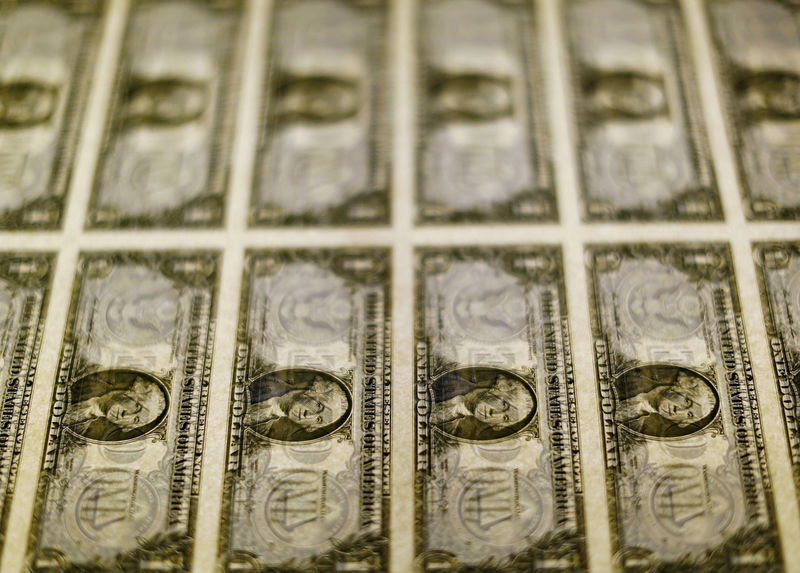(NZ dollar skids after central bank retains neutral rate bias)
* U.S. Treasury yields, Fed hike expectations underpin dollar
* Loonie pressured as Moody's downgrades 6 Canadian banks
TOKYO, May 11 (Reuters) - The dollar edged lower after notching an eight week high against the yen on Thursday in Asian trade, while the New Zealand dollar tumbled after its central bank suggested a tightening was further out than markets had priced in.
The dollar was slightly down on the day at 114.14 yen JPY= after earlier rising as high as 114.37, its highest since March 15.
The yen had gained in the previous session after U.S. President Donald Trump abruptly fired FBI Director James Comey, raising investors' fears that the controversial move would lead to political turmoil and derail U.S. stimulus steps and tax reform.
Such fears were not entirely vanquished. Days before he was fired, Comey told lawmakers he sought more resources for his agency's probe into possible collusion between Trump's presidential campaign and Russia to sway the 2016 U.S. election, a congressional source said on Wednesday. with markets pricing in around a 90 percent chance that the economy is strong enough for the Federal Reserve to raise interest rates at its meeting next month, investors did not lose sight of fundamentals.
"Optimism about the U.S. economy is quite strong, and the dollar/yen's downside is quite limited," said Masafumi Yamamoto, chief currency strategist for Mizuho Securities in Tokyo. "My June forecast was 108, but I raised it to 115."
Higher U.S. yields have supported the dollar. The benchmark U.S. 10-year yield retested five-week highs overnight after an auction result suggested weak investor demand. It was last at 2.394 percent US10YT=RR in Asian trading, not far from its Wednesday U.S. close of 2.410 percent.
The yen's early losses were limited by data out early on Thursday showing Japan's current account surplus was 2.91 trillion yen ($25.45 billion) in March, supported by solid income from overseas investments, maintaining a trend that has continued for almost three years. result marked the 33rd straight surplus month, finance ministry data showed, and beat the median forecast for a surplus of 2.643 trillion yen in a Reuters poll of economists.
The euro was up 0.1 percent at $1.0874 EUR= . That pushed the dollar index, which tracks the greenback against a basket of six major currencies, to 99.587 .DXY , down 0.1 percent.
European Central Bank President Mario Draghi said on Wednesday that it is too early for the ECB to declare victory in its quest to boost euro zone inflation despite signs the bloc's economic recovery is strengthening, confirming he is in no rush to raise interest rates or wind down the ECB's 2.3 billion euro bond-buying programme. New Zealand dollar skidded 1.5 percent to $0.6832 NZD=D4 , after the Reserve Bank of New Zealand (RBNZ) held its benchmark interest rate steady at 1.75 percent and retained its neutral bias, defying the expectations of many economists that it would lean toward a tightening of monetary policy in early 2019. they don't move the bias upward, we think there will be more inflation pressure in the near future," said Shinichi Kashiwagi, head of market sales for Japan at National Australia Bank in Tokyo.
Reserve Bank of New Zealand Assistant Governor John McDermott said underlying inflation expectations in the country had not changed substantially from three months ago and the central bank has a neutral bias on interest rates. is a lot of noise and some people are misunderstanding what they are seeing," he said of inflation expectations, in an interview with Reuters.
The dollar rose against its Canadian counterpart after Moody's downgraded the credit assessments, long-term ratings and counterparty risk assessments of six Canadian banks and their affiliates. It was last at C$1.3729 CAD=D4 , up 0.6 percent. last week it scaled a 14-month peak of C$1.3793, as slumping crude oil prices weighed on the loonie. Other factors adding pressure included U.S. duties on Canadian softwood lumber and a more uncertain outlook for the North American Free Trade Agreement under the Trump administration.
